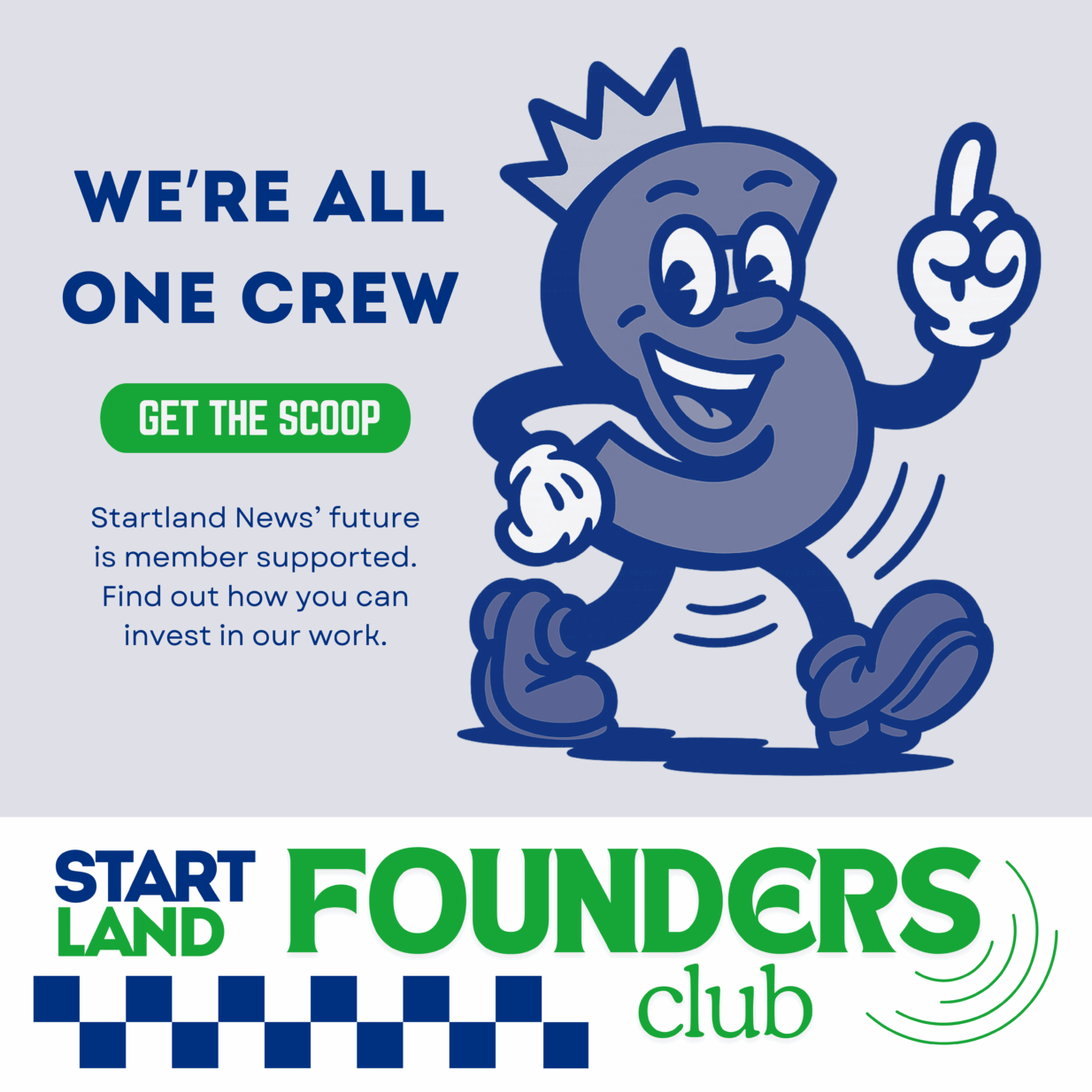A prestigious — and relatively new-to-Kansas City — resource for high-net-worth C-suite leaders and successful entrepreneurs and founders is expanding: Tiger 21, a premier peer membership organization for ultra-wealth creators and preservers, is adding a second group.
The launch is being orchestrated by Heidi Lehmann, a seasoned investor, board member and five-time startup founder leading high-impact global tech deals brings extensive entrepreneurial experience.
“The way we’re looking at it, Kansas City’s the base — it’s really a Heartland network,” said Lehmann, noting the regional Tiger 21 initiative could include entrepreneurs and leaders from such cities as Omaha, Wichita, Tulsa, Bentonville, Fayetteville, and St. Louis.
“One of the great things about Tiger: as you’re building your group out, you can have diversity of thought and backgrounds — in terms of what founders have achieved, but also where they’re from,” she continued. “So, because of the enthusiasm and the need we’ve seen in the Kansas City market and beyond, we’re now looking to bring in cities that are probably within a two- to three-hour drive.”
A structure built on expertise, vulnerability
Tiger 21 is an exclusive peer membership organization for ultra-high-net-worth wealth creators and preservers. Founded in 1999 by Michael Sonnenfeldt, its primary goal is helping participants learn how to preserve wealth from those who have already built it.
“Up until two years ago, Kansas City didn’t have a Tiger 21 group. Other peer cities like Indianapolis, Nashville, Austin, Denver, Minneapolis, they all had established groups,” said Joe Kessinger, CEO of HCI Energy, executive vice president of DeBruce Companies, and co-chair of Tiger 21’s efforts in Kansas City.
Each Tiger 21 group brings together 12 to 15 entrepreneurs, investors and top executives — often first-generation wealth creators — who meet in confidential, intimate settings in more than 50 cities worldwide.
The purpose of Tiger 21: provide a safe and unbiased environment for members to learn from each other’s experiences, tackle complex financial and personal challenges and support one another’s growth and legacy planning.
Tiger 21 currently includes more than 1,600 members globally who collectively manage more than $200 billion in personal assets.
How it works
Tiger 21’s structure supports the unique needs of entrepreneurs and wealth creators, particularly those who are first-generation and have built their businesses from the ground up, organizers said.
With a focus on shared learning, the organization’s signature “portfolio defense” exercise gives members a confidential space to share their entire financial statement and life story with peers who can offer valuable feedback and insights on financial strategies, family governance and succession planning.
“The member giving their portfolio defense spends about an hour and a half talking about how they grew up, what things affected their life, what’s their family life, what were their parents are or were like,” Kessinger said.
“They also share a slideshow discussing how they made their money, their challenges in life and more,” he continued. “That’s all the qualitative type aspect of it to help the members understand on a deep level who this person is.”
Next the group delves deeper into quantitative considerations alongside the member.
“They literally share their personal financial statement with everybody — what all their investments are and what their allocations are,” Kessinger said. “Then, they ask two or three questions that they want the group’s help with. Questions like ‘Here’s my estate planning, do you guys see any flaws in it? Here’s my portfolio — do I have the proper diversification? I’ve been thinking about getting out of this deal or that deal, what do you think?’”
An atmosphere of trust and confidentiality in Tiger 21 fosters meaningful relationships — the organization boasts an 87 percent renewal rate — making it a safe space where members can confront personal and professional challenges with honesty and vulnerability, he added. This is particularly valuable for members navigating complex family dynamics, philanthropic aspirations, or planning the legacy of their wealth.
“They are really opening up their kimono,” Kessinger said, “and this is really the glue that holds the group together because when you’re that vulnerable with a group of people and they are that vulnerable with you, it really brings them together and solidifies them.”
Global connections
Tiger 21 participants also have access to a global network, meaning Kansas City members can connect with like-minded peers across the world, sharing insights and opportunities in cities from Dubai to Singapore.
Beyond local meetings, members can also access specialized networks focusing on topics like venture capital, private aviation, health and more.
The organization also produces a podcast — NEXT with TIGER 21 — highlighting pathways to success as told by those who have achieved their version of it.
If you’re ultra-wealthy, what’s the problem?
Kessinger emphasized that wealth creation often introduces new challenges.
“Entrepreneurs often think liquidity solves all their problems, but really it just presents new ones,” he noted.
“And, one of those problems is where you can find unbiased advice on topics like estate planning, tax planning, investing and the like,” Kessinger continued. “Needless to say, there’s plenty of people for a fee who want to give you advice, but it’s not always objective. Our founder, Michael Sonnenfeld, was in a similar situation 25 years ago and saw a lot of value in having a group of peers around solving these types of issues and problems.”
Kansas City’s existing group members say Tiger 21 is the only place where they can open up and ask questions on such topics, he added. And many say that even their good friends — high school and college friends — can’t relate.
“If they bring up these types of issues,” Kessinger said, “their friends may look at them with scorn or disbelief; but they’re real life problems.
“They are telling this group things that they don’t tell their friends or, in some cases, even their family.”
The rise of high‑net‑worth peer groups
Tiger 21’s expansion is part of larger growth in a broader ecosystem of ultrawealthy peer networks. While complex, various sources trace the reason for the rise of these groups to the increase in the world’s ultra-high-net-worth population — those with $30 million plus in assets — which grew by 6.2 percent in 2024, with North America leading the way at over 7.3 percent.
These groups may be thriving in part because new research is showing collective insight often outperforms individual experience.
Research from Vistage, for example, shows their members increased revenue by 4.6 percent in 2020, while non-members saw revenue decrease by 4.7 percent during the same period.
And Tiger 21 and Vistage are only two players in a growing field.
Several peer advisory groups, some decades old, are now competing for the attention of the ultrawealthy. What follows is not a comprehensive list, and these groups vary in structure, membership criteria and focus areas.
However, all state a commitment to fostering meaningful dialogue and support among high-net-worth individuals.
- YPO (Young Presidents’ Organization — Founded in 1950, U.S.-based YPO targets chief executives with more than 36,000 members in 142 countries.
- EO (Entrepreneurs’ Organization) — Founded in 1987, EO is a 14,000-plus-member peer-to-peer network for business owners with revenues exceeding $1 million annually.
- Vistage — Founded in 1957, Vistage is a CEO peer advisory group focusing on the leadership decision-making process. They operate worldwide.
- Strategic Coach — Strategic Coach is what the name implies: a business coaching organization, but one founded by one of the leading experts in the field, Dan Sullivan, in 1989.
- Family Office Exchange (FOX) — Purportedly the first membership organization to bring together family members, family office executives and professional advisors into a community, FOX was founded by Sara Hamilton in 1989.
What happens next for KC?
Creating a Tiger 21 group is not just about gathering people, Lehmann said, it’s about assembling the right mix of voices and perspectives. By doing so, group discussions will remain relevant, practical and deeply engaging, she said.
Lehmann expects to launch her regional expansion group this summer, with a goal to cap out membership at the standard 12 to 15 individuals. Group leaders screen carefully, ensuring each prospect has the fortitude and character required and the ability to make the monthly meeting and undergo the portfolio defense.
“You’ve got to be willing to lean in and contribute,” she said. “And then, from a capital perspective, each member has to have a qualifying net worth of $20 million.”
She estimated the average net worth for a Tiger member at about $100 million.
Once a group of candidates is identified, Lehmann said, next comes a series of “formation meetings,” the purpose of which is to “get everybody around the table, run an abbreviated Tiger meeting, and from that you see how the group is meshing together, what kind of chemistry they have — is the expertise well represented that you might want to have to launch the group.”
After that comes an invitation for candidacy for the group.
Haines Eason is the owner of startup content marketing agency Freelance Kansas. Previously he worked as a managing editor for a corporate content marketing team and as a communications professional at KU. His work has appeared in publications like The Guardian, Eater and KANSAS! Magazine among others. Learn about him and Freelance Kansas on LinkedIn.








































